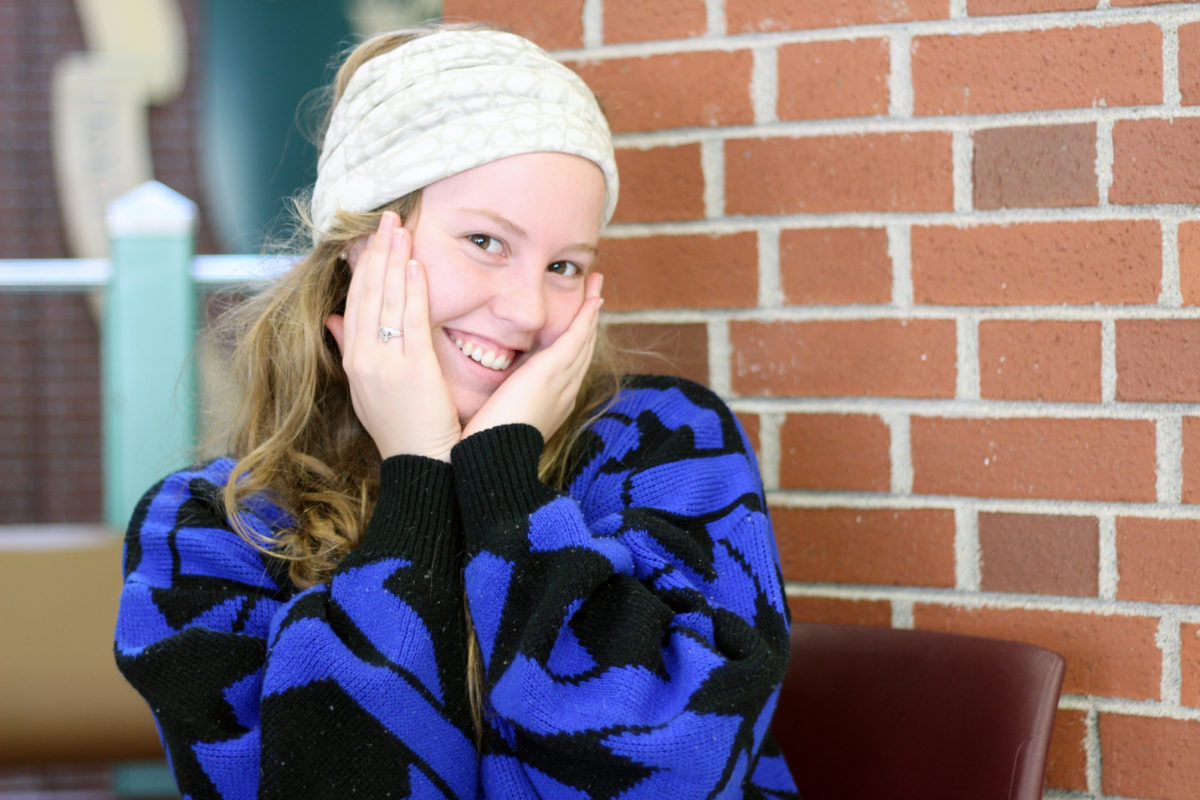Madeleine MacPhail was hiking a mountain with her family in Puerto Rico in the summer after her first year at St. Thomas. This normally wouldn’t be a big deal for her. She played both ice and field hockey. But when she came off that mountain she was sore. Her knees were swollen. Mid-way through that summer she went to a doctor because the pain became unbearable. That’s when she was diagnosed juvenile arthritis.

“I was really healthy and then I wasn’t,” the fourth year sociology student said.
MacPhail’s arthritis didn’t just make her a little sore once in a while. She has arthritis in every joint in her body. It immobilized her. She had to quit sports.
“I couldn’t go to the Cellar with my friends. It was un-doable. I had a huge limp.”
MacPhail’s father has diabetes, and although it may not be the cause of her arthritis, MacPhail says both diseases are linked genetically. Her doctors were not surprised that MacPhail had arthritis.
“Bad gene pool,” MacPhail joked.
This is the first year MacPhail is healthy enough to get around by herself and not have to worry too much about it. In the previous years she hadn’t found the right mix of medicines to allow her such freedom. MacPhail said it was hell to live through.
“I wouldn’t wish it on anyone. Even now, like when I say it’s under control, it’s good days and bad days.”
But MacPhail knows her arthritis isn’t an excuse to stop her life. She has to push through the bad days despite the pain.
Still, she’s constantly smiling and giggles throughout the interview. She laughs about the fact that her grandfather and her have to take the same medications, and about her crazy Eastern European doctor who was once very blunt about the pain MacPhail was about to receive from a sword-sized needle.
What does bother MacPhail is when people find her arthritis funny by associating it with elderly people, but juvenile arthritis is one of the most common childhood diseases. It’s not a joke for MacPhail. It’s incredibly painful.
“People would be like, ‘ha-ha, this is hilarious,’ and I’m like, ‘Okay, I could kill you right now. This hurts so bad,’” MacPhail said.
Arthritis has had another crippling effect on MacPhail’s life. It has made her financially dependent on school and her parents. The needle MacPhail needs once a month to keep the arthritis tame is expensive. She’s 21 and her needle is covered under her parent’s health plan, as long as she’s in school. She doesn’t want to leave, but she knows that freedom is not an option anyway.
“I’m going to graduate next semester. That’s what worries me. Paying for [that needle] the rest my life.”
When other friends take a semester off to travel the world, MacPhail is forced to sit back and watch. She knows she can never do that and pay for her medicine.
This is what bothers her the most. The pain may be intense, but MacPhail is trapped in a bigger way. She doesn’t get to live her dreams.
“I don’t really have the freedom to move around and do what I want to do all the time. It makes you kind of tied down.”
But MacPhail’s life isn’t over. She and her family are going skiing next March break. Skiing was her choice. She might miss the Black Diamonds but she’s content. It will just be good to know she can ski.
“I’ll probably take it easy, which is okay for me. Better than nothing.”
